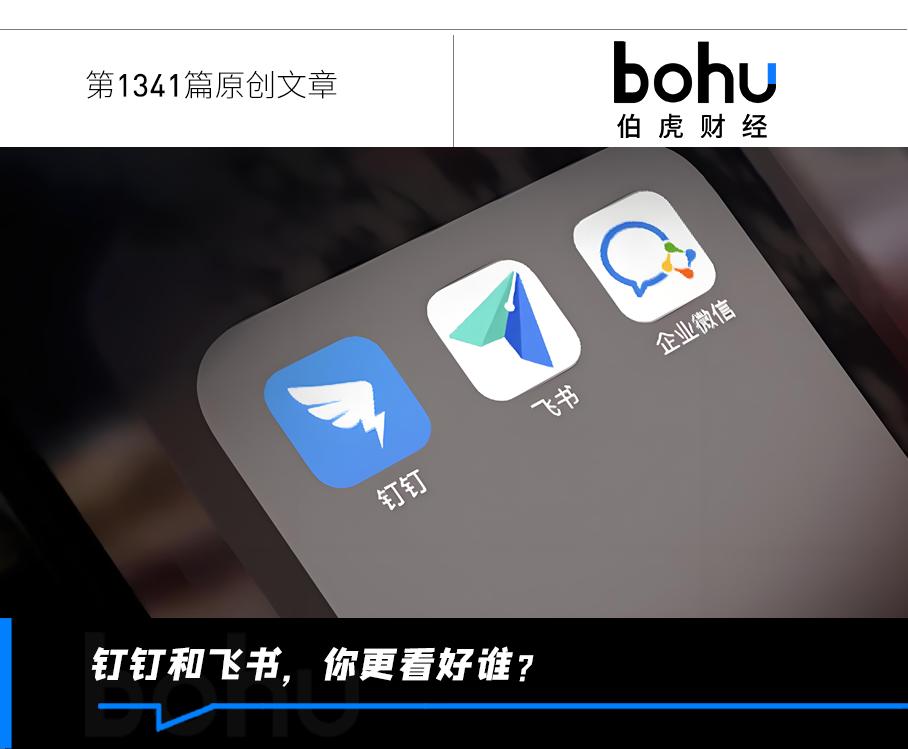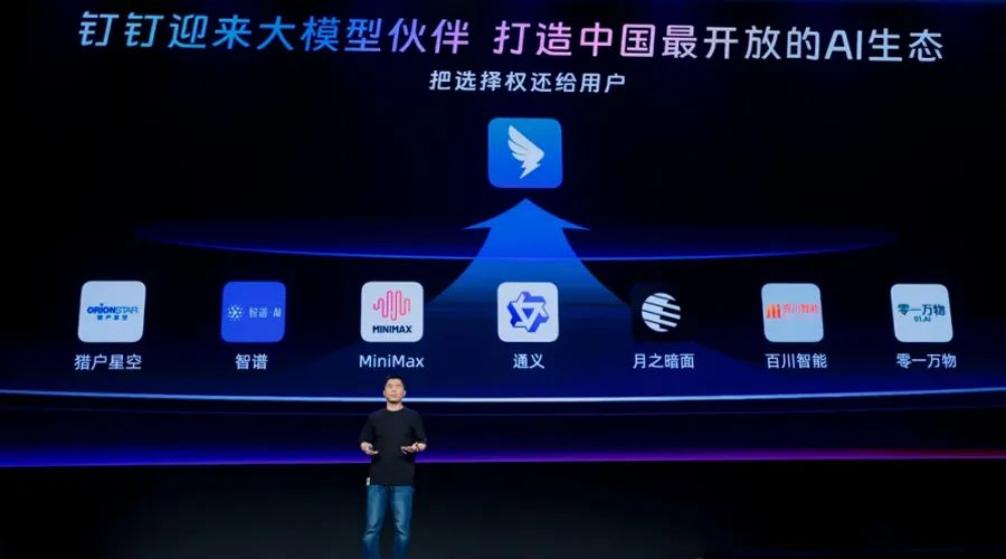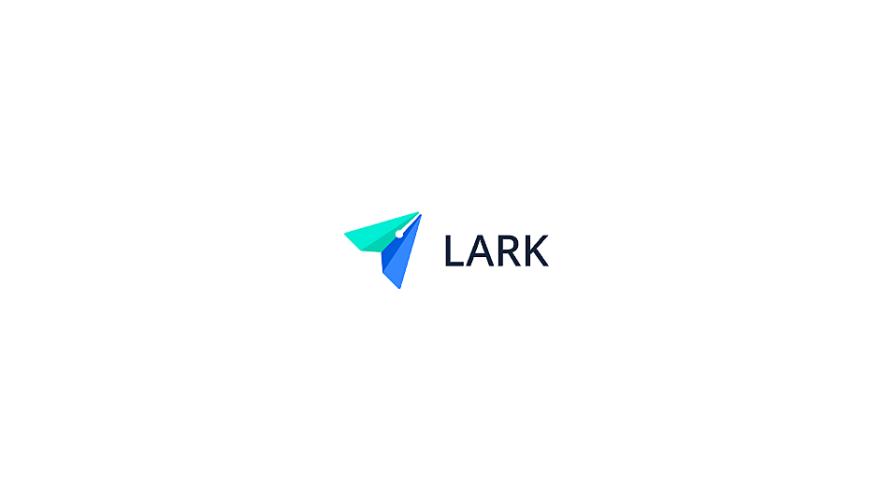The Anxiety of Chinese SaaS: After Big Models, Expanding Overseas, Will It Work?
![]() 07/17 2024
07/17 2024
![]() 465
465

Source | BohuFN (bohuFN)
In the past decade, the rise of the SaaS (Software as a Service) model has provided enterprises with a flexible, efficient, and cost-effective software application solution. Among them, platforms like DingTalk and Feishu have become leaders in China's SaaS industry with their unique functions and extensive user bases.
Their identities are as follows:
First is DingTalk, created by Alibaba Group. Since its launch in 2015, it has occupied a leading position in the industry and is known as "China's largest online office platform."
DingTalk has a broad positioning, primarily targeting school and enterprise users, with deep penetration in the education sector. By providing comprehensive commercial products and strengthening its PaaS capabilities, DingTalk has extended from APaaS to BPaaS, continuously enhancing its competitiveness in the SaaS field. Its commercial versions include Exclusive, Professional, and Dedicated versions, earning profits through paid subscriptions and commission deductions to meet the needs of enterprises of different sizes.
Next is Feishu, under ByteDance, launched in 2016, and quickly gained the favor of leading customers in internet enterprises and emerging industries over the following years.
Unlike DingTalk, Feishu focuses on improving enterprise collaboration efficiency in its business strategy, with a more vertical reach. In particular, its OKR orientation and project collaboration management functions provide strong support for enterprises pursuing innovation and efficiency. Feishu's commercialization process is also accelerating, attempting to gain a larger market share by launching a free version and enhancing AI big model capabilities.
A senior practitioner from a mid-tier SaaS company told BohuFN that DingTalk and Feishu's industry conferences aimed at the B-end market have always been the focus of the industry, "usually held twice a year."
However, halfway through 2024, the development of the SaaS industry seems to have undergone some new changes: Feishu did not hold its Spring Infinite Future Conference like in previous years, which is inconsistent with past practices.
Meanwhile, DingTalk's pace has not slowed down, and it has successfully held two conferences centered on AI as the core topic.
The contrasting actions of these two leading companies seem to be sounding the alarm for practitioners: the SaaS industry is undergoing a transformation from within.
01 "Intense Battle" Over Big Models
It is a well-known fact in the industry that DingTalk and Feishu, as two collaborative office software in China's SaaS industry, each carry Alibaba and ByteDance's commercial ambitions in the enterprise service market.
To compete for market share, in the trend of "big models can redo everything in every industry," DingTalk and Feishu naturally did not lag behind.
As mentioned earlier, DingTalk has held two conferences centered on AI this year. At the beginning of the year, DingTalk fully opened its Super Assistant function for the first time, supported by Alibaba's Tongyi Qianwen big model.
Most recently, DingTalk further expanded its cooperation by introducing six domestic top big model companies, including MiniMax, Moon's Dark Side, Zhipu AI, OrionStar, Lingyi Wuwanwu, and Baichuan Intelligence, aiming to build an extremely open AI ecosystem and return the choice to users.

Interestingly, around the same time, Feishu followed suit—also as an open AI service framework, allowing enterprises to choose suitable underlying big models based on their business scenarios.
For example, "Feishu Intelligent Partner" supports selecting underlying big model vendors such as MiniMax, Moon's Dark Side, Zhipu AI, Lingyi Wuwanwu, and Baichuan Intelligence, overlapping with five partners on DingTalk's list.
From a product positioning and form perspective, there are still some subtle differences between the two.
DingTalk's AI products are more inclined to appear as enhanced functional modules, helping users solve problems during use. AI Agent is an important focus for DingTalk; when enterprises customize AI assistants, in addition to the default Tongyi Qianwen big model, they can also choose the underlying big models of MiniMax and the other five big model vendors.
Feishu positions its AI products as "Intelligent Partners," emphasizing their exclusivity, ease of collaboration, knowledge, memory, and the ability to actively promote work. It can be said that Feishu's AI is not just a functional module but more like a "real work partner," emphasizing that intelligent partners collaborate with users like "people."
By delving into the details, building private big models for enterprise customers and realizing the privatized deployment of models is a common goal pursued by DingTalk and Feishu. Only when customers truly integrate AI capabilities into actual business when using these SaaS products can their value be verified.
To date, DingTalk has over 5600 ecological partners; the number of partners in the AI field has also exceeded 100, covering various sub-sectors such as AI big models, AI agent products, solutions, and plugins.
Meanwhile, driven by DingTalk, the number of AI assistants launched on the market has now exceeded 700. It is particularly worth mentioning that the daily call frequency of AI technology on the DingTalk platform has reached over 10 million.
While DingTalk's AI ecosystem is growing impressively, Feishu's commercialization capabilities are also remarkable.
According to Bluehole Business, Feishu has a high penetration rate among AI enterprises. "Moreover, Feishu's AI ecosystem is very open, supporting not only the C-end big model development platform 'Coze Kouzi' but also the B-end open-source large language model application development platform Dify."
From using only Doubao's big model to now covering most domestic mainstream big model products in its underlying call models, Coze undoubtedly reveals their common trend: providing users with richer big model choices, thereby bringing richer collaboration methods and winning the battle for major customers.
It is essential to understand that major customers are not only benchmarks in the market but also crucial battlegrounds for commercialization. DingTalk strengthens cooperation and openness by establishing a major customer development service system, while Feishu provides personalized services to meet the needs of large enterprises by setting up a vast CSM team.
Judging from their strategies and effectiveness, the current battle between DingTalk and Feishu in the AI field can be considered a draw. To determine which is superior, perhaps we need to wait and see.
02 Going Overseas: A Necessity
In addition to targeting big models, another common move for DingTalk and Feishu is going overseas.
In June, according to 36Kr, DingTalk has clearly defined going overseas as a strategic project, involving several internal departments including product research and development, solutions, sales, and marketing, and forming a mixed team by selecting personnel.
In fact, DingTalk announced its overseas strategy as early as 2018 and launched the overseas version DingTalk Lite in 2020, with ambitions brewing for a long time.
Feishu's overseas version, Lark, has also ventured overseas, embarking on an international journey early on. Since its launch in 2020, Lark has actively expanded its overseas market, covering many countries and regions including Europe, America, Japan, and Southeast Asia.

Such a choice is inevitable. After all, against the backdrop of gradually slowing growth in China's SaaS industry, expanding business overseas can be considered "one of the few clear choices."
According to the "2023 China SaaS Market Research Report," the total value of the global SaaS market reached US$160.653 billion in 2021, with an annual growth rate of 25.72%. However, in 2022, although the total value of the global SaaS market increased to US$175.166 billion, the growth rate slowed to 9.03%. The report predicts that the total value of the global SaaS market is expected to further grow to US$209.049 billion in 2023, with a higher growth rate compared to the previous year, and the SaaS market is expected to maintain a sustained and stable small growth trend in the coming years.
Focusing on the Chinese market, although the global SaaS market reached US$175.166 billion in 2022, the size of China's SaaS market was only 99.012 billion yuan, accounting for less than 8% of the global market. BohuFN observes that when DingTalk and Feishu各自启动出海动作时, since 2021, many SaaS enterprises have accelerated their overseas market expansion, turning their attention to regions such as Europe, America, Japan, and Southeast Asia to seek new growth opportunities.
Among these enterprises, there are experienced players in the SaaS field like Sensor Data, Geeya Workplace, and Fenxiangxiaoke, as well as emerging startups that have set their sights on the global market since their inception, such as Agora, PingCAP, AfterShip, and Airgram.
Specifically regarding their strategies, DingTalk chooses to follow the globalization process of Chinese enterprises, prioritizing meeting the collaborative management needs of Chinese enterprises overseas—especially for clients in the photovoltaic, lithium battery, and electric vehicle industries, which are the main forces of Chinese enterprises going overseas.
Previously, DingTalk had already conducted small-scale trials in the overseas field, serving hundreds of Chinese-funded enterprises with overseas businesses, including JinkoSolar, Trina Solar, and Sungrow Power Supply. Now, it has officially defined going overseas as a strategic project with higher investment.
Feishu's overseas strategy focuses more on directly promoting products and brands in overseas markets.
According to reports, Feishu's management recently held an internal meeting, revealing plans to shift business focus to overseas markets, especially Japan, Southeast Asia, and Europe.
The background of this strategy is that Feishu's domestic business is unlikely to achieve profitability in the short term, and going overseas is seen as a possible breakthrough.
To date, Feishu has accumulated many customers, but its major clients are concentrated in industries such as the internet, new energy vehicles, and games. Compared to DingTalk and WeChat Work, Feishu lacks competitive advantages in traditional industries. This overseas attempt is also part of its acceleration in commercialization and search for new growth points.
Indeed, overseas is the destination for gold rush for SaaS companies like DingTalk and Feishu. Behind the overseas moves lies the global vision and market expansion determination of Chinese SaaS enterprises.
Whether Alibaba or ByteDance, Chinese enterprises possess advanced technologies and innovative capabilities in mobile internet, cloud computing, and AI, providing strong technical endorsement and support in research and development, operations, and other aspects for DingTalk and Feishu.
However, the objective fact is that in the overseas SaaS market, many heavyweight enterprises compete fiercely, with established and emerging players like Teams, Slack, and Zoom already dividing up a large portion of the market.
Amid giants, even with the backing of major enterprises, Chinese SaaS "top students" like DingTalk still face enormous challenges in standing out in this overseas market dominated by industry giants, especially in terms of localized operations and overseas brand building; there are also significant uncertainties in market acceptance, laws and regulations, and other aspects.
The road ahead is long and arduous; let's see how DingTalk and Feishu will explore and strive.
*The cover image and accompanying images belong to the copyright owners. If the copyright owner believes that their work is not suitable for public browsing or should not be used free of charge, please contact us promptly, and this platform will immediately make corrections.






